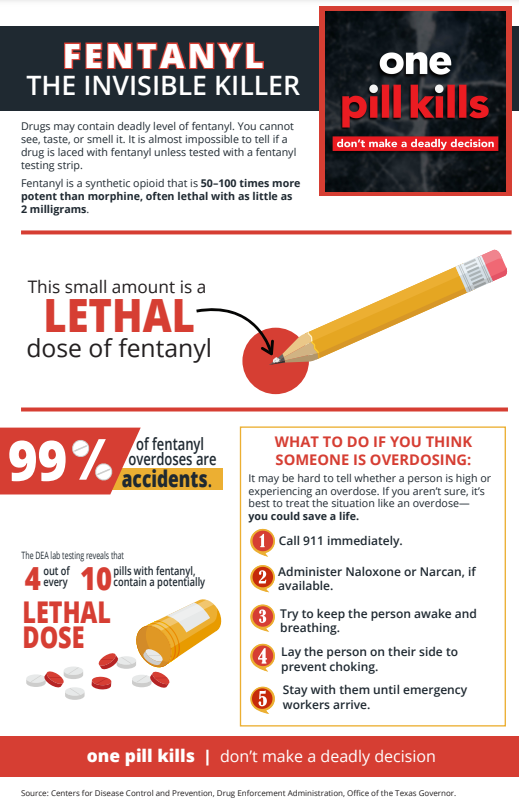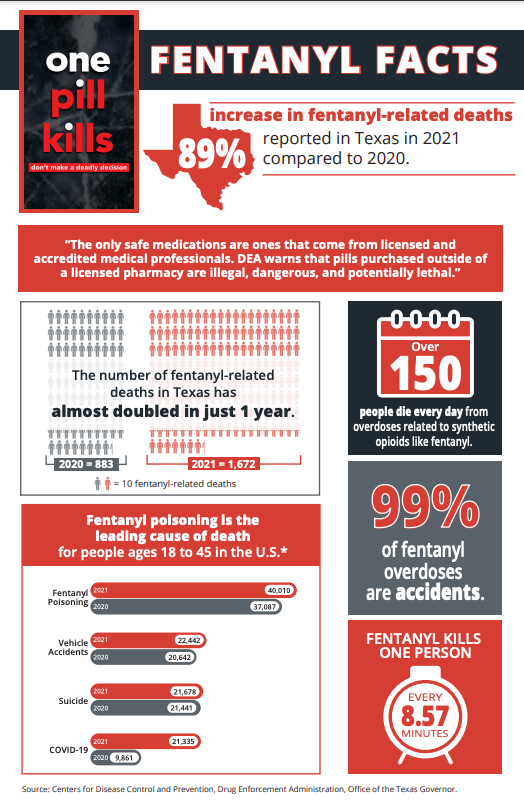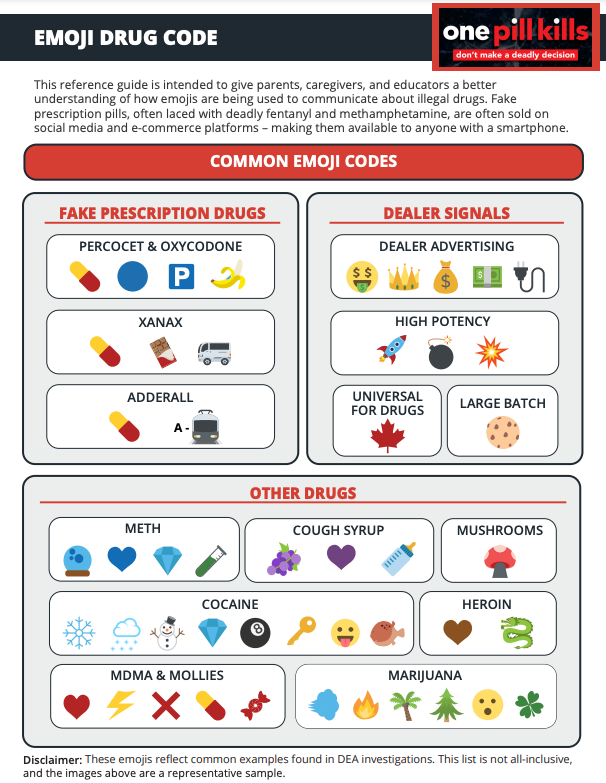Dangers of Fentanyl & Opioids
Fentanyl: What Parents Need to Know
Fentanyl is a synthetic opioid similar to morphine but is 50 to 100 times more potent. Although it can be prescribed by a doctor to treat patients with severe pain, it is also made and used illegally.
Illegal Fentanyl is sold as a powder, dropped onto blotter paper, put in eye droppers and nasal sprays, or made into pills that look like other prescription opioids. The powder is occasionally used in vaping devices for nicotine or marijuana.
Some drug dealers are mixing fentanyl with other drugs. This is because it takes very little fentanyl to produce a high, making it cheaper to produce and distribute. This is risky because people taking drugs or vaping don’t realize they might contain fentanyl, making overdose more likely.
How to recognize a fentanyl overdose?
Cannot be woken up or not moving
Breathing slow or absent
Discoloration of lips and nails
Choking or coughing, gurgling sounds
Cold or clammy skin
Dizziness or disorientation
Pupils extremely small
If you think someone is having an overdose, call 911 immediately and wait with the person until help arrives. If you think your child is using fentanyl or other opioids, don't hesitate to contact your family physician, school administrator, or school resource officer.
Fast Facts:
Opioids affect your brain - they affect areas of the brain that control pain and emotion, making it hard to feel pleasure from anything besides the drug.
Opioids affect your body - they slow down the actions of the body, such as breathing and heartbeat.
Opioids can kill you - Even a single dose of an opioid can cause your breathing to slow or stop; taking opioids with alcohol or sedatives increases this risk.
Opioids are highly addictive - People who regularly use opioids often develop tolerance, meaning they need higher and/or more frequent doses of the drug to get the desired effects.
Opioid addiction is treatable - Please get in touch with your family physician or school counselor for help.



